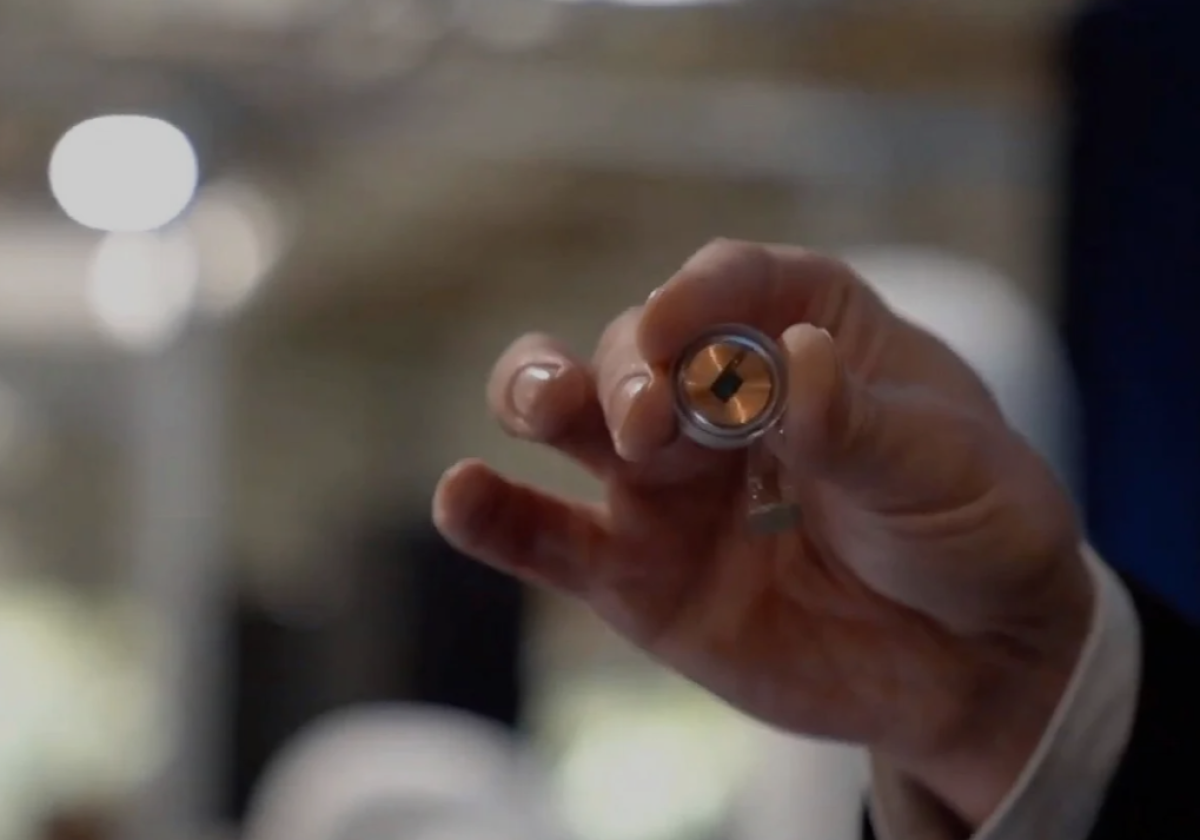Ukraine and allies boycott Paralympics opening over Russia and Belarus athletes
Ukraine’s National Paralympic Committee has announced it will boycott the opening ceremony of the Milano Cortina 2026 Paralympics in Verona on 6 Mar...
Elon Musk’s bold vision for the future of technology doesn’t stop at reshaping space exploration or electric cars. The Neuralink brain-chip technology he introduced in 2020 could mark the end of smartphones as we know them, and his recent statements amplify this futuristic idea.
Musk recently predicted that in just five years, smartphones could be obsolete, replaced by AI-driven devices that communicate directly with our thoughts, bypassing the need for screens, apps, and operating systems. While this may sound like science fiction, Musk’s Neuralin, a chip that interfaces directly with the human brain, is already taking significant steps toward this reality. And now, it’s being tested on humans.
The Neuralink Breakthrough: A Step Toward a "Zero Interface Era"
In the latest development, Neuralink has made strides in its clinical trials with two quadriplegic Canadian patients, demonstrating the chip’s potential to enable people to control computers with their minds. This is the first clinical trial outside the U.S. for the wireless brain chip, which was first implanted in a paralyzed American in 2024.
Both patients, who suffer from spinal cord injuries, received implants that connect their brains to external devices, allowing them to move a computer cursor almost immediately after surgery. Dr. Andres Lozano, a neurosurgeon leading the trial, explained that by implanting electrodes into the motor area of the brain, Neuralink taps into neuron signals to convert thoughts into actions on external devices.
“It’s extremely rapid,” Dr. Lozano said. “They just think about it, and it happens.”
This breakthrough is one of the first real-world applications of Musk’s vision of AI-driven interactions, where devices don’t just respond to our commands but actually anticipate them based on brain signals.

The Road to a Screenless Future
Musk’s ultimate goal is to replace smartphones entirely, and these early trials are a step toward that vision. Instead of relying on physical devices like phones or computers, users will be able to control AI-powered systems directly through thought—no screens, no interfaces, just pure communication between the mind and AI. Whether it’s scheduling tasks, sending messages, or controlling a car, the possibilities are endless.
These brain-computer interfaces (BCIs), as seen with Neuralink, are about pushing the limits of what we consider “smart devices.” No longer will we need to tap, swipe, or click. Musk imagines a future where we simply think about what we need, and AI responds.

Building the Future: From Thought to Action
Neuralink’s recent successes are promising but caution remains, as explained by Barry Munro, a researcher in spinal cord injury and the chief development officer at the Canadian Spinal Research Organization. While the technology shows great promise, Munro urges that “educated hope” is crucial, pointing out the challenges of implementing a system like this on a large scale. Some trials have encountered setbacks, such as implant slippage in earlier tests, but overall progress has been encouraging.
The technology is still in its infancy, with current clinical trials focusing on the safety and quality of life of participants. The patients in the Canadian trial are still in the process of learning how to type on a computer without a keyboard and even play video games using only their thoughts. Dr. Lozano emphasized that this is just the beginning, with future applications possibly allowing users to control anything from cars to robotic arms with nothing but their minds.
The Bigger Picture: AI-Driven Devices
Musk’s vision for AI-driven devices isn’t just about making existing technology better, it’s about revolutionizing the way humans interact with the digital world. By seamlessly integrating AI into the brain, devices will become an extension of the body, anticipating needs and acting on them without needing to be actively controlled.
For now, the Neuralink chip is a groundbreaking step toward eliminating the need for traditional devices. If successful, it could not only render smartphones obsolete but redefine how humans engage with the world around them.
The Future is Now
It’s easy to dismiss Musk’s ideas as overly ambitious, but considering the rapid pace of technological advancements, this new phase in human-computer interaction could arrive sooner than expected. Neuralink could pave the way for a future where technology is no longer something we hold in our hands, but something we wear in our minds.
While smartphones are an integral part of daily life today, Musk’s vision suggests a time may come when we won’t need them at all. Instead, AI will be embedded directly into our lives, making the traditional smartphone feel like a relic from the past. It’s a future where the only device you need is your mind.
Israel is preparing for the possibility of receiving a green light from the United States to launch strikes against Iran’s ballistic missile system, according to Israel’s public broadcaster KAN.
Aghdam’s Qarabag FK experienced a 6–1 defeat to England’s Newcastle United in the first leg of their UEFA Champions League play-off tie in Azerbaijan's capital Baku Wednesday evening (18 February).
U.S. President Donald Trump’s 'Board of Peace' will hold its first leaders’ meeting on Thursday (19 February) in Washington, D.C., launching an initiative aimed at stabilising Gaza and addressing global conflicts. It's drawn support from regional powers but refusals from several EU countries.
The Board of Peace will be "looking over the United Nations," said U.S. President Donald Trump at the inaugural Washington meeting, where representatives from over 20 countries gathered to unveil plans for Gaza’s reconstruction and coordinate international support.
Russian President Vladimir Putin met Cuban Foreign Minister Bruno Rodriguez in the Kremlin on Wednesday, telling him that new restrictions imposed on the communist-run island were unacceptable.
Eric Dane, the actor best known for his roles in 'Grey’s Anatomy' and 'Euphoria', died on Thursday, at the age of 53 after a battle with amyotrophic lateral sclerosis (ALS). His family confirmed his death after what they described as a “courageous battle” with ALS.
Robert Duvall, the Oscar-winning actor renowned for his steely intensity and commanding performances in films including The Godfather and Apocalypse Now, has died at the age of 95.
Tourists from all over the world flock to Paris, France for elaborate Valentine’s Day proposals, with agencies reporting record bookings and luxury packages reaching up to €100,000.
Thousands of local residents and international visitors have gathered in northern Thailand for the 49th annual Chiang Mai Flower Festival, one of the city’s longest-running contemporary events.
More than 100 couples tied the knot at a mass civil ceremony in Lima, Peru on Thursday, ahead of Valentine’s Day. The Lima Metropolitan Municipality regularly holds community weddings to make civil marriage more accessible to local couples, provide legal protection and speed up the paperwork.
You can download the AnewZ application from Play Store and the App Store.

What is your opinion on this topic?
Leave the first comment